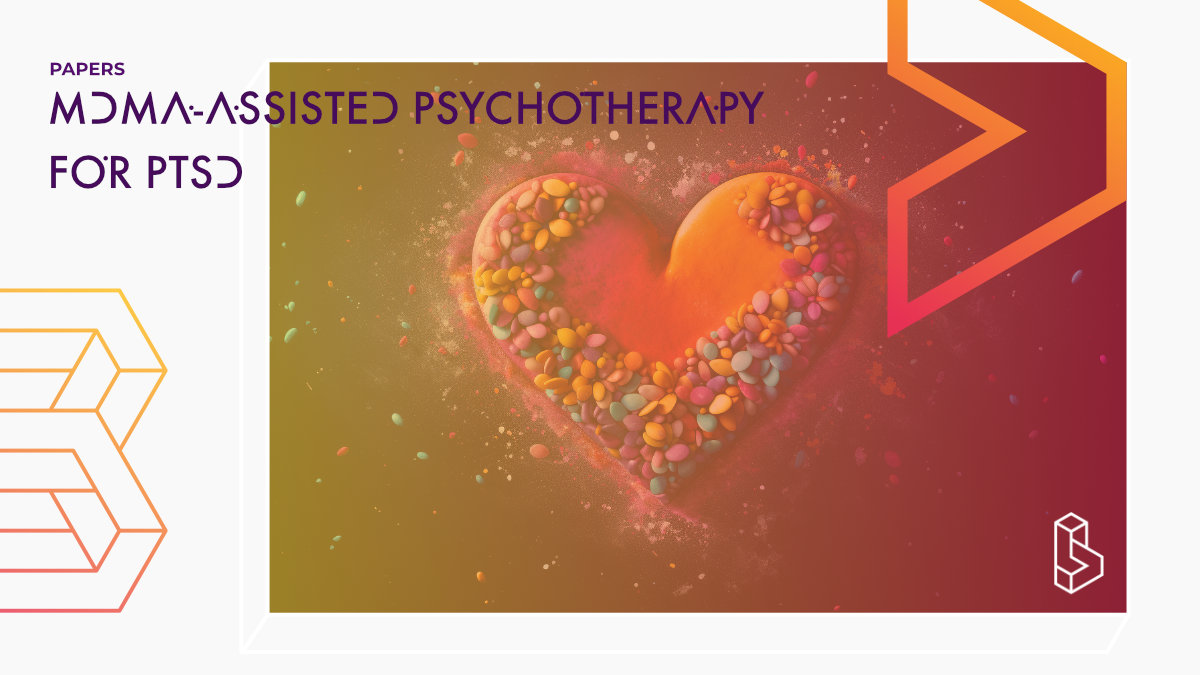This review (2018) suggests how memory reconsolidation and fear extinction may play a significant role in the potent therapeutic effects of MDMA in the treatment of PTSD.
Abstract of MDMA-assisted psychotherapy for PTSD
“MDMA-assisted psychotherapy for treatment of PTSD has recently progressed to Phase 3 clinical trials and received Breakthrough Therapy designation by the FDA. MDMA used as an adjunct during psychotherapy sessions has demonstrated effectiveness and acceptable safety in reducing PTSD symptoms in Phase 2 trials, with durable remission of PTSD diagnosis in 68% of participants. The underlying psychological and neurological mechanisms for the robust effects in mitigating PTSD are being investigated in animal models and in studies of healthy volunteers. This review explores the potential role of memory reconsolidation and fear extinction during MDMA-assisted psychotherapy. MDMA enhances release of monoamines (serotonin, norepinephrine, dopamine), hormones (oxytocin, cortisol), and other downstream signaling molecules (BDNF) to dynamically modulate emotional memory circuits. By reducing activation in brain regions implicated in the expression of fear- and anxiety-related behaviors, namely the amygdala and insula, and increasing connectivity between the amygdala and hippocampus, MDMA may allow for reprocessing of traumatic memories and emotional engagement with therapeutic processes. Based on the pharmacology of MDMA and the available translational literature of memory reconsolidation, fear learning, and PTSD, this review suggests a neurobiological rationale to explain, at least in part, the large effect sizes demonstrated for MDMA in treating PTSD.”
Authors: Allison A. Feduccia & Michael C. Mithoefer
Notes on MDMA-assisted psychotherapy for PTSD
This study was financially supported by MAPS PBC. Allison Feduccia receives full-time salary support from her employer MAPS Public Benefit Corporation. Michael Mithoefer received salary support from MAPS Public Benefit Corporation as a clinical investigator and clinical trial medical monitor, as well as for training and supervision of research psychotherapists.
Summary of MDMA-assisted psychotherapy for PTSD
Posttraumatic stress disorder (PTSD) may develop after exposure to a single traumatic event or from repeated stressful experiences, such as childhood abuse. Pharmacological agents have been shown to improve outcomes and reduce dropout rates in patients with PTSD.
MDMA is a psychoactive substance that promotes release of serotonin, (nor)epinephrine, and dopamine and stimulates neurohormonal signaling of oxytocin, cortisol, prolactin, and vasopressin. It is effective in reducing PTSD symptoms after only 2 – 3 administrations of MDMA in conjunction with several nondrug therapy sessions.
Find this paper
https://doi.org/10.1016/j.pnpbp.2018.03.003
Open Access | Google Scholar | Backup | 🕊
Cite this paper (APA)
Feduccia, A. A., & Mithoefer, M. C. (2018). MDMA-assisted psychotherapy for PTSD: are memory reconsolidation and fear extinction underlying mechanisms?. Progress in neuro-psychopharmacology and biological psychiatry, 84, 221-228.

